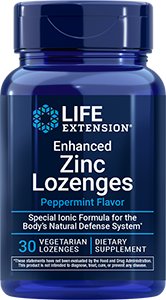
Newsletter
Newsletter
Meta-analysis affirms benefits for resveratrol in adults being treated for diabetes

January 12, 2021
A meta-analysis published on November 30, 2020 in the journal Molecules concluded that resveratrol supplementation helps improve glucose control and lowers blood pressure among diabetics being treated with metformin and/or other glucose-lowering drugs.
“Resveratrol has been reported to have more protective effects over metformin in diabetes-associated complications in preclinical settings. This has led to the initiation of several randomized controlled trials (RCTs) assessing the impact of resveratrol…in patients with type 2 diabetes on metformin therapy,” Tawanda M. Nyambuya and colleagues wrote. “The current meta-analysis aimed to assess whether resveratrol…improves basic metabolic parameters in patients with type 2 diabetes on hypoglycemic medication.”
For the analysis, the team selected five randomized trials that evaluated the effects of resveratrol on glucose control or kidney function among a total of 388 diabetics. While the majority of participants reported using metformin, other antidiabetic therapies included insulin, glibenclamide and sulfonylurea drugs. Resveratrol doses varied from 40 milligrams to three grams per day and trial durations ranged from one to six months.
Pooled data indicated that resveratrol intake was associated with a reduction in fasting glucose, insulin and systolic and diastolic blood pressure compared to the control. Total protein, a test used to assess kidney function, was also lower among participants taking resveratrol.
“The current meta-analysis is the first to explore and critically discuss the impact of resveratrol…in patients with type 2 diabetes on metformin therapy,” the authors announced in their discussion of the findings. They noted that the addition of resveratrol to diabetes therapies does not appear to have adverse interactions, including severe reductions in blood glucose.
Products
Apply What You’ve Learned: Grapes
- Besides being delicious, grapes contain numerous nutrients, including vitamins, minerals fiber and polyphenols that are associated with health benefits.
- Grapes contain over 1,600 phytochemicals whose amounts vary according to the variety of grape. While all grapes contain beneficial compounds, purple or red grapes contain higher amounts than green grapes. These compounds include flavonols, catechins, procyanidins, anthocyanins and resveratrol, which may be responsible in part for health benefits associated with drinking red wine.1,2
- Grape seeds are high in proanthocyanidins, which research has associated with antioxidant, antimicrobial, antidiabetic, anti-neurodegenerative, anti-osteoarthritic, anticancer and heart and eye-protective properties.3
- Grape skins are particularly rich in antioxidant polyphenols that have been the subject of research during the past several decades. Among the most well known is resveratrol, which also occurs in other plants such as Japanese knotweed. Resveratrol has shown activity against glycation, oxidative stress, inflammation, neurodegeneration, some types of cancer and even aspects of aging.4
References
- Singh CK et al. Mol Nutr Food Res. 2016 Jun;60(6):1406-15.
- Castaldo L et al. Molecules. 2019 Oct 8;24(19):3626.
- Unusan N. J Funct Foods. 2020 Apr;67:103861.
- Galiniak S et al. Acta Biochim Pol. 2019 Feb 28;66(1):13-21.
Featured Life Extension Magazine® Article
Fisetin: A Longevity Senolytic
by Zach White
Fisetin is a plant compound whose benefits have recently come to light. It occurs in strawberries, apples, persimmons, grapes, onions and other plant foods. For life extensionists, one of fisetin’s most notable functions is that of a senolytic agent which helps remove old, dysfunctional cells that can damage the body. Another important role for fisetin is that of activating sirtuins, which are proteins that help cells perform at their optimal level. Sirtuin activation has been associated with lifespan extension in animal studies.
While fisetin had been known to be poorly absorbed, a newly developed method increases absorption up to 25 times higher.
What's Hot
Health Concern
Meta-analysis concludes lipid benefit for grape polyphenols
A meta-analysis published on January 22, 2020 in the Journal of Clinical Medicine adds evidence to a lipid-lowering effect for grape polyphenols in men and women.
Diabetes and Glucose Control
Diabetes mellitus is characterized by high levels of glucose in the blood. Type 2 diabetes is far more common than type 1 diabetes and is mainly caused by resistance to the effects of the hormone insulin, which facilitates removal of glucose from the blood. Type 1 diabetes is primarily caused by destruction of insulin-producing pancreatic beta cells.
Related Life Extension Magazine® Articles
Grapes: Rich in Polyphenols
The skin of the grape is a rich source of cancer-fighting proanthocyanidins, which possess 50 times more antioxidant power than vitamin C. Research demonstrates that grapes and their compounds provide potent protection against cardiovascular disease, cancer, and age-related cognitive decline.
How Resveratrol Combats Leading Causes of Death
Findings from the 2010 Resveratrol Conference held in Denmark have validated Life Extension’s long-held belief that resveratrol acts to combat the killer diseases of aging and delay the aging process itself. Discover resveratrol’s 12 mechanisms of action and multimodal power to protect against diabetes, cancer, and heart disease.
Life Extension Clinical Research Update
Life Extension Announces Its First Virtual Study
Private | Safe | Virtual
Life Extension Clinical Research is conducting our first national clinical research study on minor aches and pains... and YOU can help us.
Easy to participate:
- Men and women between 35 and 75 years old
- Able to read, speak and write English
- Generally healthy
- Able to follow all study instructions
- Available for phone, email, text and video visits
Easy to do:
- Follow the supplement plan
- Complete some questionnaires and a health survey
- Have access and skills needed to operate a computer, tablet or smartphone
The latest news on aging, nutrition, and vitamins
- Probiotics and Antidepressants: Do They Work Together Through the Gut-Brain Axis?
- Fruits and Vegetables May Improve Sleep Quality, According to New Research
- Avocado Nutrition Facts: 10 Benefits for a Stronger, Healthier Body
- Can Gut Disorders and Vitamin Deficiencies Predict Alzheimer’s and Parkinson’s?







